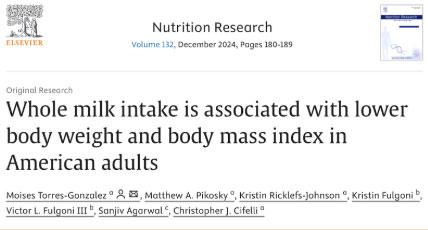
A skeptics guide to nutrition news
Why be a skeptic?
- Most nutrition studies do not properly disclose the presence, and impact, of industry funding.
- When industry funding is properly disclosed, study results are favorable to the sponsor more than 60% of the time.
- 40-60% of scientific studies cannot be reproduced.
- A research claim is more likely to be false than true, meaning conclusions were made that aren’t backed up by the data.
- Many research findings simply represent the current prevailing bias.
Sources of support
The study and writing of the manuscript were supported by National Dairy council.
How to be a Savvy Consumer of Nutrition News
- What is the source? Does the source have a known agenda, or financial interest, in what they are reporting? Is it clickbait?
- Does the headline sound sensational? Be skeptical if it: a) sounds too good to be true, b) is trying to scare you, or c) is overselling itself.
- Was the research done on humans? Studies done on mice or in a petri dish cannot be generalized to human health.
- Go beyond the headline. Read the entire article. Headlines often oversimplify complex findings or misrepresent the study's conclusions.
- Is it correlation or causation? Does the study show correlation (association between factors) or causation (one factor directly causing another)? Most nutrition research is correlational and should be interpreted with caution.
- Consider relative risk vs. absolute risk. Relative risk compares the risk between two groups (e.g., "50% higher risk"), while absolute risk shows the actual difference in risk (e.g., "increases from 2% to 3%"). Headines often use relative risk because it sounds more dramatic.
- Is the study titled “Effect of food product X on disease Y?” If so, the research is likely to be industry-funded and have biased results.
- Have you heard it before? If the results seem contrary to what you know about a topic, be skeptical. Cross-check information with other sources to get a more balanced view.
- Is it relevant to you and your health? Consider how applicable the study findings are to your own health goals and circumstances. Personalized advice requires tailored approaches beyond generalized research findings.

